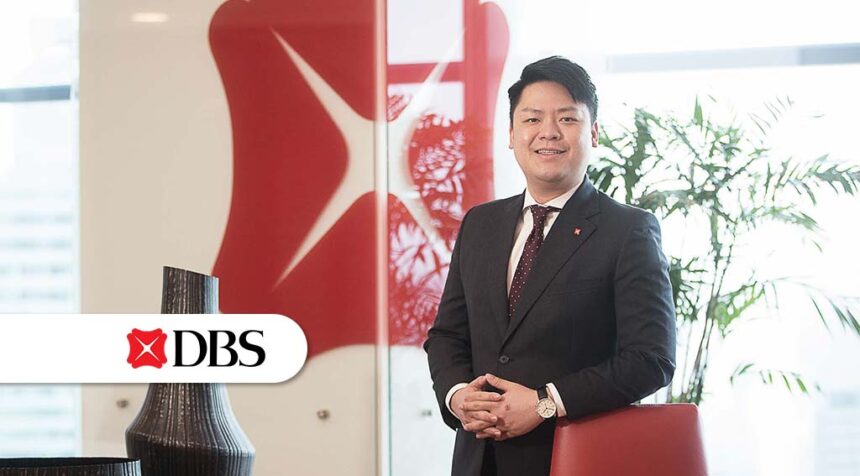Digital assets have seen renewed investor interest in recent years, thanks in large part to supportive regulatory measures.
For example, the U.S. Securities and Exchange Commission’s approval of a Bitcoin exchange-traded fund (ETF) earlier this year has boosted sentiment towards Bitcoin, while governments around the world are actively working to clarify new regulations for the asset class, signaling significant potential for further growth and development.
Likewise, traditional players are jumping on the bandwagon, with major banks racing to launch crypto trading desks and asset management firms creating a growing number of crypto-related products and funds.
In the region, Singapore-based DBS Digital Exchange (DDEx), backed by Southeast Asia’s largest banking group, DBS, plans to tap into growing demand for a “bank-grade, trusted, licensed platform offering a full suite of digital asset services across trading, custody and security token offerings.”

Speaking to Fintech News Singapore in an interview, DDEx chief commercial officer David Hui said DBS had recognised the potential of digital ledger technology to transform the way value is stored and transferred seamlessly around the world, almost instantly, since 2019.
“Our client base of professional investors, including corporate investors, institutional investors, brokers, financial institutions, accredited investors and family offices, recognises this.”
As such, DDEx was launched in December 2020 to address a gap in the market for a digital asset platform that could uphold the regulatory, operational and security standards expected of any professional trading counterparty, David added.
DDEx allows professional investors and financial institutions to trade digital assets, store their tokens with DBS Bank, access tokenized investment opportunities via the bank’s deal creation team, and seamlessly manage their digital asset portfolios alongside their traditional portfolios using the bank’s applications.
Rather, the available data seems to support the fact that interest in digital asset investments is on the rise.
Growing interest among the wealthy
According to the Capgemini Research Institute’s World Report Series 2024, high net worth individuals (HNWIs) looking to diversify into higher-yielding asset classes are showing increasing interest in alternative investments such as digital assets.
“Wealthy individuals are becoming increasingly interested in digital assets, especially cryptocurrencies.
“Half of the relationship managers we surveyed reported a surge in client interest and investment in cryptocurrencies,” the report, which also included feedback from the ultra-high net worth individuals, noted.
Similarly, DDEx’s David said the firm’s current focus is on corporations, institutions, accredited investors and family offices, as these investors are generally better able to manage the inherent risks of digital assets.
It is true that investing in digital assets involves risks and trading in this class of cryptocurrencies and other assets often exhibits high volatility.
Who can forget? The collapse of once-high-flying cryptocurrency exchange FTX Has there been an event in 2022 that has created a huge wave of distrust in the global cryptocurrency industry?
It continued for months and had a knock-on effect on related industries.
However, David noted that high-profile cryptocurrency collapses have led investors to place greater emphasis on working with counterparties that have the right qualifications, particularly in the areas of risk management, asset segregation, security and financial stability.
“These are the same value propositions we have tried to offer our clients since our inception in 2020.
“The market validated our approach: when the market crashed in 2022, the number of bitcoin stored at DBS more than doubled as investors sought safe-haven, bank-grade platforms like ours. As digital asset markets recovered, our strong growth trajectory continued.”
He said the value of digital assets traded on DDEx in the first five months of this year was Almost three times as many Compared to the same period in 2023.
“Furthermore, the number of active trading clients at DDEx grew by 36% between January and May this year, while digital assets held at DBS surged by more than 80% in Singapore dollar terms over the same period,” he said.

He also said that with growing confidence that the industry is transforming into a more professionally managed one than in earlier periods, professional investors are increasing their allocations to the alternative asset class, seeing it as a legitimate part of their alternative portfolios.
“To serve investment needs, we are exploring ways to list stablecoins on our exchange and enable our customers to earn rewards through staking Ethereum. We also continue to evaluate opportunities for suitable security token offerings.”
Digital assets are attractive to mainstream institutional investors
Regarding the recent interest in the crypto space from institutional investors such as BlackRock, David said it shows “how far the industry has come.”
“Over the past decade or so, digital assets have evolved from a passing curiosity to alternative assets being seriously considered by institutional and professional investors.
“A Spot Bitcoin ETF answers the needs of investors looking for an easy way to access this asset class,” David said.
BlackRock, the world’s largest asset manager, was initially seen as skeptical of digital assets but surprised some by launching its own Bitcoin ETF earlier this year and has since shown a keen interest in doing more in the space.
David noted that ETFs alone are only one piece of the puzzle to achieving widespread institutional adoption.
“Equally important is the proliferation of institutional-grade platforms that give investors peace of mind regarding their investments.
“We recognised a gap in the market for an institutional platform early on and launched DDEx to provide our clients with a trusted, bank-grade platform to securely access the digital asset economy.”
DBS’ role in industry collaboration
David welcomed the continued innovation across the industry, saying it proves that blockchain technology is not just a passing fad, but a “megatrend that is here to stay.”
“Tokenization and smart contracts will enable 24/7 trading, with transactions settled instantly and automatically. This will bring new levels of financial inclusion and efficiency to the financial ecosystem, reinforcing Singapore’s position as an innovative and forward-thinking financial centre.”
However, he warned that given that such technologies are still in their infancy, there is a risk that different industry segments will develop their own standards and walled gardens, hindering mass adoption of blockchain and tokenization.
“So at this point, it’s important to prevent the creation of digital islands by building partnerships and proactively shaping industry best practices.
“In this regard, DBS has been an active participant in several industry-wide pilot initiatives such as the MAS-led Project Orchid and Project Guardian,” he said.
David said that by joining these efforts, the bank will foster responsible innovation across the digital asset ecosystem while positioning itself to be proactive as new technologies are adopted at scale.
He said DBS will continue to develop solutions to meet the investment needs of professional investors.





